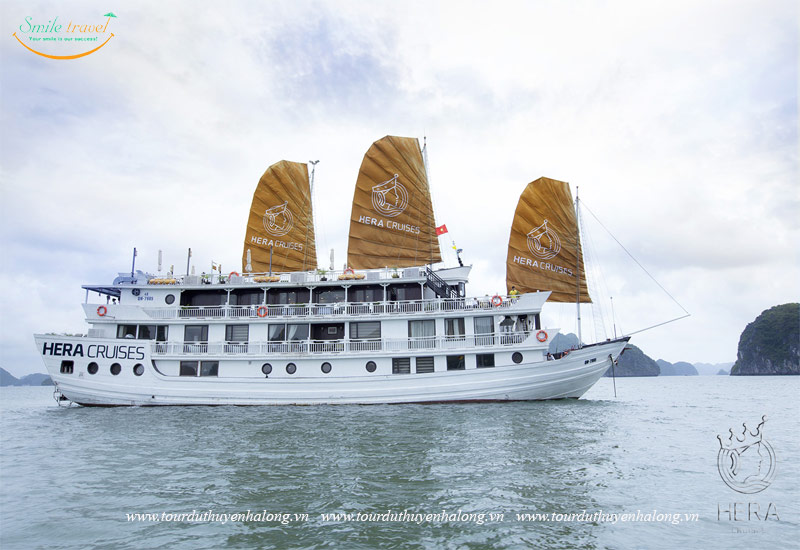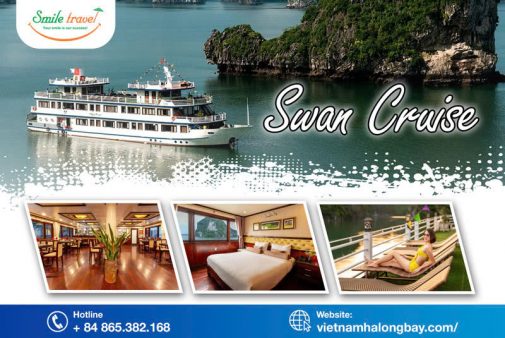Phu Quoc, Vietnam’s largest island, is gaining recognition as the country’s top beach destination. With numerous stunning beaches to explore, this comprehensive guide provides valuable insights, including recommendations for accommodation at each location. However, it’s important to note that Phu Quoc is currently undergoing significant changes that may not align with the serene image typically associated with beach getaways.
In recent years, the island’s infrastructure has been upgraded, resulting in improved accessibility to many of Phu Quoc’s beaches. Unfortunately, this development has also led to large-scale resort construction, environmental concerns, and occasional littering in several areas. While the island and its beaches are not completely spoiled, it’s essential for travelers to be aware of this reality before planning their visit.
To make an informed decision, it’s helpful to understand the island’s geography. The south and west coasts are experiencing rapid development and ongoing construction, while the north and east coasts remain relatively untouched and tranquil. Consider this distinction when selecting the part of the island that suits your preferences.
By acknowledging the ongoing transformation of Phu Quoc, visitors can better manage their expectations and choose experiences that align with their desired atmosphere. Despite the changes, Phu Quoc’s beaches still offer breathtaking beauty and memorable moments for travelers willing to explore responsibly.
Sitemap
Beaches on Phu Quoc Island
1. Ong Lang Beach: Tranquil Oasis on Phu Quoc’s Central North-West Coast

Escape the bustling streets of Duong Dong town and discover the serene beauty of Ong Lang Beach, located just a short 10-minute drive to the north. This long stretch of sandy bays, interspersed with black volcanic rock formations, offers a unique and picturesque setting on Phu Quoc’s central north-west coast. While it may not be a continuous stretch of unbroken beach, the interconnected mini-bays of Ong Lang exude a peaceful and calming ambiance, embodying everything you desire in a tropical beach retreat.

Lined with swaying coconut palms and casuarina trees, the beach gradually transitions to rich red earth a few meters inland, where lush tropical gardens, fruit orchards, and vibrant flowers flourish abundantly. Nestled within the shade of this lush foliage, a network of narrow paved lanes and dirt alleyways has blossomed into a thriving tourist enclave. Here, you’ll find boutique resorts catering to various price ranges, organic-produce shops, trendy cafes, chic bars, and a selection of Western restaurants. Unlike some other popular beaches on the island, the development along Ong Lang Beach has predominantly maintained a low-rise and, at times, low-impact approach.

While Ong Lang has experienced substantial growth in popularity over the past few years, with steady development between the beach and the main road, it has managed to retain a laid-back atmosphere. As a result, it remains an incredibly appealing destination for a memorable stay of a few days, whether you’re a family, couple, or group of backpackers. The accommodation options across all budgets are excellent, with more affordable choices located a short stroll inland from the beach, while mid- and high-end resorts offer beachfront luxury.
2. East Coast Road: Bai Thom to Ham Ninh
The recent sealing of road TL48 between Bai Thom and Ham Ninh has opened up a captivating and previously unexplored section of Phu Quoc’s east coast to visitors. While it may not boast the long sandy beaches found in other parts of the island, the east coast possesses a unique charm and sense of seclusion that becomes increasingly appealing with each passing year. As mass tourism brings construction, crowds, and an abundance of tourist infrastructure to other areas, the east coast remains a tranquil haven.

Stretching for 30 kilometers from just south of Bai Thom to Ham Ninh, the East Coast Road treats travelers to a scenic journey. Along this route, you’ll encounter secluded and rocky beaches adorned with coconut palms, tropical almond trees, and volcanic rock formations. The east coast boasts a sparse population, tranquility, and a lack of development. Throughout the day, a gentle onshore breeze originating from Cambodia’s distant purple-hued high ridges provides a refreshing touch to the entire coastline. Just inland, the lush jungles of Phu Quoc National Park flourish on the steep slopes. The bays bask lazily in the sun, undisturbed and serene. The shallow waters teem with fish and even offer some coral close to the shore. While traces of trash may wash up on the beach, it pales in comparison to other parts of the island. Charming hamlets nestle in the shade of tropical trees, some of which host delightful local seafood restaurants.

Towards the northern section of the coast, you’ll find Hon Mot, a small green islet that can be reached via a wooden plank causeway from the picturesque beach at Quán Hòn Một. Though a sign warns of landmines, locals assure that it’s safe to navigate the stone pathways.
Continuing south, Da Chong Port, which was once a bustling hub with daily ferries to the mainland, is now seldom used. However, its reactivation seems likely to accommodate the upcoming resorts that will soon grace this remote coastal stretch. Currently, most resorts cluster towards the southern part of the East Coast Road, and they offer exceptional accommodations.

3. Rach Tram Beach: A Serene Oasis Awaiting Discovery

Nestled on the remote outskirts of Phu Quoc Island, Rach Tram Beach stands as an untouched gem, exuding serenity and breathtaking natural beauty. While it remains the least visited beach on the island, this tranquility may soon be disrupted as developments are on the horizon. Recently, the once rough, red-dirt lane leading to the beach has undergone significant widening and partial paving, primarily to accommodate an upcoming tourism project. This accessibility improvement currently makes it easier than ever to reach Rach Tram, although please note that some sections of the final few kilometers may still be uneven and muddy.

Once you arrive at the bay, you’ll be greeted by a long and picturesque beach with calm, crystal-clear waters, encompassed by lush, forested hills. It’s important to bear in mind that Rach Tram is a working beach. Along the shimmering shoreline, you’ll encounter a couple of rustic fishing villages, seemingly unaffected by tourism but facing considerable poverty. As is common in Vietnamese fishing communities, scattered trash can be found across the bay. Fishing-related debris, both picturesque (such as the weathered hulls of abandoned wooden boats) and unsightly (like discarded polystyrene boxes and fishing nets), can clutter sections of the sand. However, the scale of this issue is relatively smaller compared to other areas on the island. It remains uncertain where these fishing communities will relocate once resorts establish themselves in the area. Despite these challenges, visiting Rach Tram is a highly recommended experience. The ability to walk for miles along the sublime and empty beach is truly remarkable. Currently, there is no accommodation available at Rach Tram, but plans for development are underway. In the meantime, camping is an option for those with their own equipment. Embarking on the journey to Rach Tram is part of the adventure, as you traverse through jungles and cajeput forests while witnessing birds of prey gracefully soaring in the sky. There are proposals to transform this region into an eco-tourism zone, although the actual implications of this designation may differ from common expectations.
4. Thom Beach

Nestled in the remote northeastern tip of Phu Quoc Island, Thom Beach captivates with its stark beauty and serene atmosphere. This sparsely populated stretch of land, embraced by the scent of cashew fruit and the chorus of midday cicadas, offers an enchanting experience. While most of the beaches here are pebbly, rocky, and tucked away from view, accessible only via dirt tracks, the shallow and tidal waters add to the unique charm of Thom Beach. Thom hamlet itself is a humble settlement comprising local shops, seafood restaurants, fishermen’s dwellings, and a school. Despite its simplicity, Thom Beach exudes a tranquil and captivating character. While it may lack expansive sandy shores, it compensates with calm, shallow waters harboring hidden coral formations and abundant marine life.

The panoramic vistas stretching towards the Cambodian coast and highlands, coupled with the warm hospitality of the friendly locals, further enhance the allure of this remote paradise. The lush tropical foliage, along with cozy spots like Local Beach Bar, Friendly Beach, and Luna Beach, where you can camp by the sea under the shade of majestic palm trees while dogs frolic in the surf, beckon you to savor the refreshing taste of a freshly cracked coconut or a glass of local beer before indulging in a delectable seafood dinner amidst the cool evening sea breeze. These experiences serve as a gentle reminder that Phu Quoc still harbors the essence of authentic island life, even though some residents of Thom may hail from the suburbs of Hanoi.

Thom Beach and its surrounding area offer ample opportunities for exploration, providing a place where time seems to stand still. As the southern, central, and northwest coasts undergo rapid development or transformation, Thom Beach, along with the rest of the east and north coasts of Phu Quoc, becomes an increasingly appealing destination for those seeking an authentic travel experience. These areas epitomize the island’s untouched charm, offering a glimpse into the unspoiled side of Phu Quoc, away from the typical tourist hubs. However, with the recent paving of the East Coast Road (TL48) between Thom and Ham Ninh, one can only wonder if the slumbering beauty of Thom Beach will soon be awakened.
5. Ganh Dau Beach

Nestled on the remote northwestern tip of the island, Ganh Dau Beach is a hidden gem boasting a picturesque stretch of pristine, flour-white sand framed by swaying palm trees. To the east, lush and densely jungled ridges provide a stunning backdrop. Accessible via a well-paved lane leading east from the vibrant fishing village of the same name, Ganh Dau Beach offers a tranquil and shaded haven. The calm and shallow waters, with wooden fishing boats gently swaying offshore, create a serene atmosphere. In the distance, the Cambodian islands emerge as blue silhouettes on the horizon, reminiscent of humpback whales.

Ganh Dau encompasses the entire northwestern cape, which includes a scenic bay housing the local fishing fleet, a bustling fishing town with a lively and captivating market, a rustic fishing harbor, and an abundance of street food stalls brimming with local flavors. However, down by the beach, tranquility prevails, and the beachscape remains untouched by the sprawling mega-resort constructions that dominate much of the west coast of Phu Quoc. The existing resorts, though small, are thoughtfully positioned to showcase the natural beauty of the area. (Nevertheless, some of them face the challenge of encroaching tides at high tide, as they were constructed a bit too close to the surf).
The presence of Ganh Dau town adds another layer of charm to this destination, as it provides easy access to local life and culinary experiences. The town is within walking or cycling distance from the resorts, allowing you to immerse yourself in the vibrant island culture—an opportunity that may be harder to come by when staying at some of the other popular beaches on Phu Quoc. Furthermore, this part of the island exudes a remote allure, creating a sense of isolation and exclusivity, as if it were a self-contained municipality. On the western side of Ganh Dau Cape, you’ll find a selection of excellent seafood restaurants offering delightful views of the glistening bay. Notably, Nam Phuong stands out as the best option, with its seafront restaurant, wooden-plank waterfront walkway, and a hidden sandy cove perfect for bathing.
All in all, Ganh Dau Beach currently holds the title of my personal favorite place to be and stay on Phu Quoc Island. Its tranquil ambiance, untouched beauty, and proximity to local life make it an ideal retreat. Whether you choose to spend a few leisurely days or immerse yourself in the captivating surroundings, Ganh Dau Beach promises an unforgettable experience.
6. Vung Bau Beach
Located on the captivating north-west coast, Vung Bau Beach stands out as one of the most alluring beaches on the island. However, it is important to note that recent developments have brought major resort projects to this area. In the heart of the bay, Fusion Resort, an opulent all-inclusive retreat, has recently opened its doors, while the sophisticated Nam Nghi Resort occupies the northern section. The latter boasts an exquisite setting on a lush, rocky headland at the tip of the bay. With its delightful pool, Tree House restaurant, and a charming private island serving as a bar (accessible to non-guests via a short boat trip), Nam Nghi Resort offers a luxurious experience, albeit at a higher cost. Visitors can indulge in the pleasure of sipping a refined cocktail while witnessing the sunset—a memorable, albeit pricey, excursion. Despite these developments, there are still a few pristine, undeveloped stretches of sand where the tranquil blue waters meet the tree-lined shore.

It is worth mentioning that the dirt road along the bay is no longer accessible by motorbike from the south due to the implementation of a checkpoint, although walking or cycling along this route is still permitted and rewarding. Furthermore, it is anticipated that significant construction will commence in the near future. From the north, the dirt road remains open for all vehicles but only until Fusion Resort, where the road ends. To reach Vung Bau Beach conveniently, the recommended approach is to take the paved road leading directly to Nam Nghi Resort and then proceed south on a bumpy road that leads to several exceptional mid-range resorts situated along a breathtaking stretch of coastline.

7. Starfish Beach (Rach Vem)

Nestled along the forested northern coast, Starfish Beach, locally known as Rach Vem, offers a secluded retreat accessible via a sandy lane connected to a red dirt road. Thus far, its remote location has shielded it from extensive development. However, over the past couple of years, Rach Vem has gained popularity as a day trip destination, particularly among domestic tourists. Its appeal lies in the abundance of floating fish farms, which also double as seafood restaurants, and the mesmerizing presence of hundreds of starfish residing in the shallow waters. Although resort development is looming on the horizon, construction has yet to commence in earnest. Presently, accommodations are unavailable on Starfish Beach, but it may be worth inquiring about the possibility of camping or renting one of the hammocks scattered along the sandy shoreline for a night’s stay.

Every day, hundreds of day-trippers flock to Starfish Beach, relishing a delectable seafood lunch and basking in the beauty of the captivating beach located at the northern end of the bay (sun loungers can be rented for a nominal fee). In the southern part of the bay, conditions in the Rach Vem fishing hamlet may appear rugged, with the water and immediate vicinity marred by debris and sewage. However, such circumstances are not uncommon for remote fishing communities in Vietnam. Do not let this deter you, as the broader bay area remains clean and picturesque. Notably, the stretch of pristine white sand just beyond the primary cluster of fish farms, towards the north, provides an idyllic spot for a refreshing swim. During the peak season, Vietnamese groups, known for their discerning palates, frequent this area to savor the freshest seafood. It is not unusual to find inflatable slides floating in the calm bay, offering entertainment for both children and the occasional adventurous adult.
8. Sao Beach

Renowned for its gracefully arcing palm trees, pristine snow-white sand, and the distinct azure waters, Sao Beach stands as one of the most popular beaches on the island. Once hailed, albeit inaccurately even then, as the “Best Beach in Vietnam,” Sao Beach retains its allure for leisurely walks and invigorating swims. However, a closer look reveals the challenges it faces, and numerous factors contribute to its current state. The surge in popularity led to hasty and temporary constructions of small resorts, bars, cafés, and restaurants, resulting in an accumulation of waste that infiltrated the narrow freshwater creeks flowing onto the beach and into the sea.

The tranquility was disrupted by the presence of jet skis, filling the waters with fuel and shattering the silence. Moreover, discarded coconut husks, consumed in large quantities by day-trippers, amassed, littering the sand and surf. Sao Beach’s glory days have faded for at least three or four years, leaving behind a rather melancholic ambiance and a neglected appearance. Despite the recent paving of the dirt road leading to the beach and the continued influx of thousands of visitors daily, Sao Beach is a mere shadow of its former self. It comes as no surprise that extensive resort development, which was always an inevitable outcome and perhaps a contributing factor to the subpar temporary structures, is now on the horizon.
The northern end of the beach, the most captivating section with slender coconut palms painting a paradise-like backdrop, has been cleared for the construction of a large resort. It seems unlikely that the rest of the bay will escape a similar fate. Nevertheless, Sao Beach still offers opportunities to enjoy a refreshing swim, take a leisurely stroll along the enchanting sandy bay, savor a gin and tonic, and relish a grilled fish lunch at Paradiso Beach Club—the premier destination on Sao Beach.






